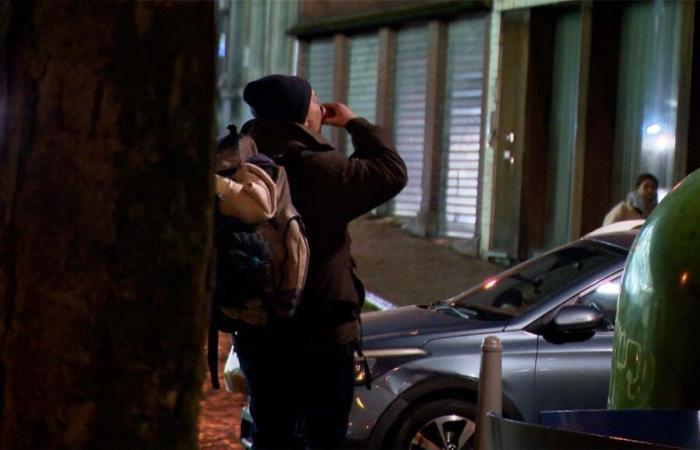In Liège, nearly 250 people live on the streets. While some homeless people struggle with addictions, many find themselves in this situation after a life accident. Fortunately, street sentinels and volunteers provide them with support and human warmth through patrols organized six evenings a week. Immersion in this daily life marked by poignant stories.
It is 7 p.m. when Francine, Lucien, Jordane and Fabienne, volunteers for the evening, begin their marauding. Their first stop is for Christophe, 49, who has been living on the street for two and a half years. A graduate in economics, he speaks easily about politics and public finances, but his life was turned upside down after the death of his mother.
“I had an accident in my life: the death of my mother. I lost my bearings a little because I always took care of her”he confides.
I learned to understand people and society differently
Although he receives a social integration income of 1,288 euros, Christophe struggles to find accommodation. “A lot of landlords don’t consider it income, so there’s a lot of discrimination.”
Despite everything, Christophe keeps a different perspective on his situation: “I discovered a different world, I learned to understand people and society differently.”
Pascal, eight years old on the street
A little further on, the volunteers find Pascal, who is sleeping in a parking lot entrance where he has been tolerated for years. Victim of arson, he lost everything and has been living outside for eight years. “There was an asshole who set fire to my house, and I found myself on the street”he explains.
Pascal refuses night centers, which he considers dangerous: “I never go there, there are lots of drug dealers”. Deprived of his social integration income after a stint in prison, he subsists as a beggar. “If the street sentries weren’t there, I would have died”confides the man, grateful.
A particular distress
Among the homeless, there are also women. Bambina, 26, lost her job in a restaurant and could not count on the support of her family.
I have no more strength for all this, I’m fed up
“My parents didn’t want to take me back, and I ended up here. At first, you think it’s easy money, but after that it doesn’t work anymore. I don’t have the strength for all that anymore , I’ve had it up to here”she explains, sobs in her voice.
-
For Francine, one of the sentinels, these situations are particularly trying: “When I see Bambina and I hear her, I want to cry. But we have to move forward and support them without judging them”.
Essential human connections
The raids are not just about handing out toast or hot drinks. For volunteers, the real objective is to create human connections. “Toasts are an excuse”explains Lucien Creppe, Francine’s colleague. “What matters is the exchange. When we leave them, they always tell us: ‘Take care of yourself.’ It shows how precious this connection is.”
We’re a bit like a little family
Indeed, solidarity is often what allows the homeless to hold on. Christophe confirms this: “Here, at the station, we help each other. We’re a bit like a little family.”
An increasingly worrying situation
For Francine, the situation becomes more and more complex. “There are a lot of addiction problems, but also people who are very alone or have mental disorders. We are sometimes powerless in the face of situations where people are in danger, or put others in danger”she says.
Despite the difficulties, these maraudes remain a valuable support for the homeless, offering them a little human warmth in a life marked by precariousness. Behind each meeting, there are stories of life turned upside down, but also gestures of solidarity which, for many, make all the difference.
precariousness homeless without shelter Maraude street sentinel volunteers Liège








